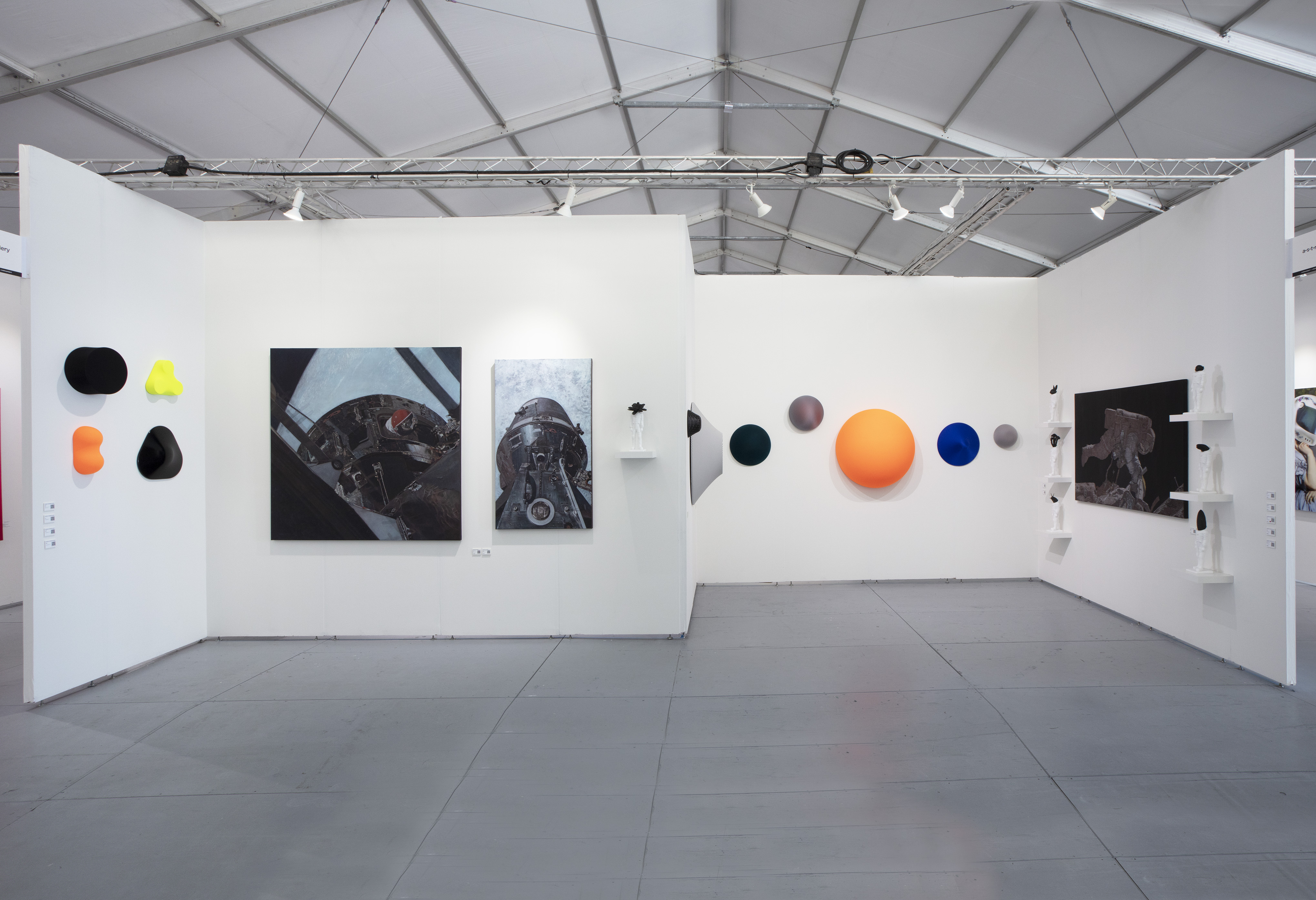Scope Miami
a—s—t—r—a х Scope Miami
Dec 3-8, 2019
Booth D07
Commemorating man’s first steps made into the Great Unknown, Taming the Space project features the works of three contemporary Russian artists who come up with a fresh look on art and the Universe. Inspired by the legacy of a Soviet Space Odyssey and the ideas of Russian Cosmism, they explore artistic boundaries and change our optics of perception, each in their own way.
Taming the Space
In memoriam of Alexey Leonov (May 30, 1934 – October 11, 2019), the first human to enter the outer space.
“Human is a being in transition between birth and self-creation", Nikolay Fedorov, Russian Philosopher
Every human is a microcosm that tries to comprehend and mirror a macrocosm that is the Universe, at the same time rendering an explanation for it in course of an infinite reflection resembling a Moebius loop. In both its internal and external manifestation, Space represents a void that invariably requires an ever-busy filling and exploration.
Mankind’s awe towards the Universe, a reflection of its beautiful gigantism in human ambitious designs and futuristic dreams, the ambivalence of the unknown, the pursuance for interaction and fear of silence, all this turns the Space Odyssey into humanity’s dream of its own immortality.
Today, the ideas of Russian Cosmism conceived by Nikolay Fedorov, Vladimir Solovyev, Konstantin Tsiolkovsky, Vladimir Vernadsky, and Alexander Chizhevsky may sound optimistic against the current background of environmental disasters and generally apocalyptic apathy; they promise salvation from destruction to both nature and mankind by creating a new space through a combination of scientific, technical and philosophical knowledge, through the study of yet undiscovered human capabilities.

A fresh approach to the ideas that were envisioned at the beginning of the 20th century gives us a chance to believe in the unity of man and Space. It allows us to dream of a possibility that those inanimate stellar worlds that sadly wink at us from infinite darkness can be illuminated by human intelligence; that they can be warmed up with humanly love because human life and consciousness is a force that can resist entropy, chaos, decay, and death. Man can tame Space by gradually entering, conquering it with life drop by drop; with the life of first Space explorers – flowers, animals, birds that can stir up its deadly vacuum with their heartbeat.
When the First Crew conquers back enough living space in the eternal void by sacrificing and thus perpetuating itself, a man enters the outer space to treasure this newly discovered knowledge forever and spread it to the galaxy’s edges. From this moment on, the void (though still yawning and overwhelming) serves as a mere material for creation that pulsates with reason and transfiguration.
It seems probable, that the dream of the Russian philosopher Nikolay Fedorov of a future when the humankind will overcome the laws of gravity and will be conquering Universe using the resources of all three generations (past, present, and future) by turning it into a superior artwork, will come true before the eyes of our children.
Denis Prasolov, Dima Hunzelweg, and Nastya Miro are the tree artists who reinterpret the philosophical heritage of Russian Cosmism welcoming the viewers to join this exciting journey with no end in sight.
